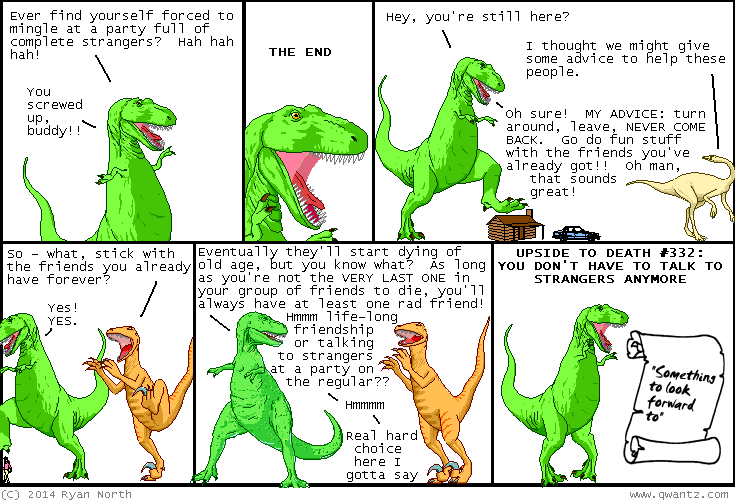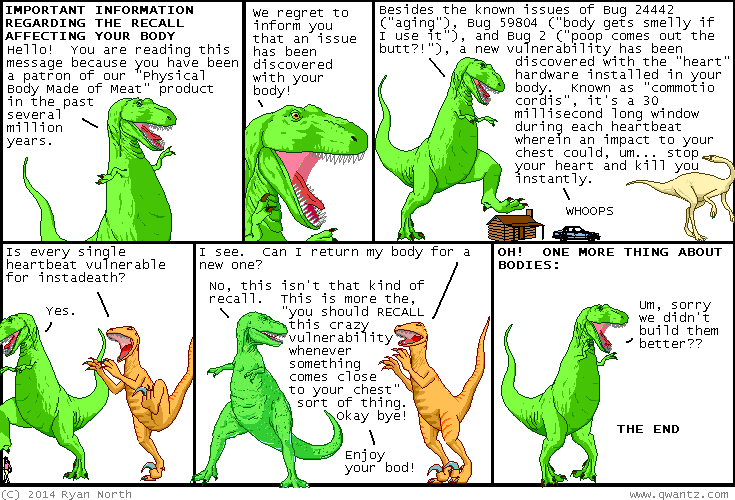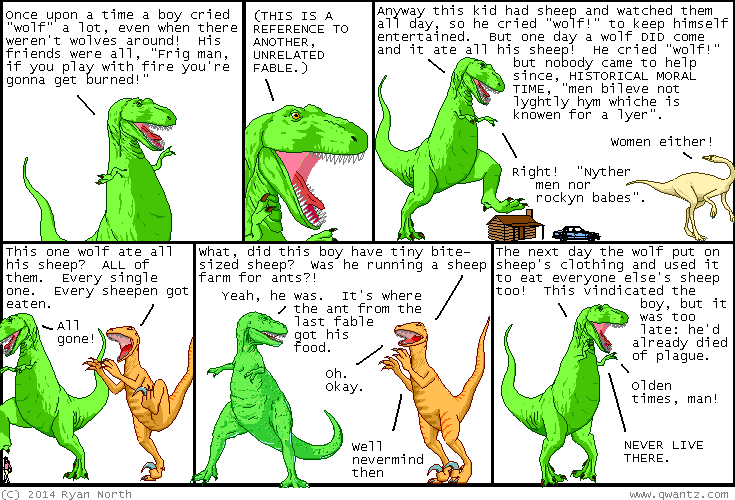There’s a passage in Matthew’s account of the Resurrection (27:52-53) that hasn’t received much attention until relatively recently. At the moment Jesus is resurrected:
“the tombs broke open. The bodies of many holy people who had died were raised to life. They came out of the tombs after Jesus’ resurrection and went into the holy city and appeared to many people.”
Christopher Hitchens was among the more prominent people to do a doubletake: ‘These rather conspicuous events, which among other things would seem to make resurrection something of a commonplace, were entirely missed by Saint John, or at any rate unreported by him, and appear not at all in the only written historical record, which was by Flavius Josephus.’.
All four canonical gospels spend a lot of their time discussing the events of the death and Resurrection of Christ (at least a third of their word count), but only Matthew thinks it worth mentioning that ‘many holy people’ emerged from their tombs and walked into Jerusalem, and the quote above is the sum total of Matthew’s description. It does beg a few questions: How many holy people? Who were they? Who did they appear to? What happened to them afterwards?
Matthew is describing one of the most impressive miracles anywhere in the Bible, and not just because it sounds spectacular, dramatic and above all else public, so difficult to dismiss. It’s significant because it’s a miracle that’s not just a conjuring trick, it’s something that should have been extraordinarily informative, with some direct theological implications. Did these holy men say anything interesting? Lazarus did, we’re told, when he returned from the dead. Did they just stand there? How did people recognise them, if they didn’t say anything?
Perhaps a more practical question is to ask where Matthew got his information. Well, the first thing to note is that the author of the Gospel According to Matthew refers to the apostle Matthew in the third person, and that the attribution of this Gospel to him is based on a fourth century source who said Matthew wrote a book of collected sayings in ‘the language of the Hebrews’, then ascribes a Gospel to him that isn’t a book of sayings and most scholars agree was originally written in Greek. There is, as ever, some debate, but no one really argues that the author of Matthew was an eyewitness. He was writing at least one, probably two generations after the event, and he was probably living in Syria. Even if he’d been living in Jerusalem at the time, he couldn’t have been an eyewitness to every event of those days. If he’d seen the ‘many holy people’ who’d risen himself, you might think he’d describe that in more detail.
He based what he wrote on ‘Mark’ (the earliest gospel, most scholars agree); the Q Document, which is not, as Chris Morris once suggested, the book where Christ was issued his Walther PPK and gadgets, but a now lost book of Jesus’ sayings that ‘Matthew’ and ‘Luke’ seem to have read but ‘Mark’ apparently hadn’t; and some material unique to Matthew, which he’d possibly acquired by collecting oral accounts or referring to now-lost letters, lists or similar documents.
Where did the author learn about the ‘many holy people’? We don’t know. There are – as far as I’ve been able to find out – no other contemporary accounts, either from Christian or non-Christian sources, canonical or non-canonical, that even hint at it. It does seem odd that something so spectacular didn’t rate a mention anywhere. This may or may not mean something. The Romans loved stories about weird happenings, what we’d call Fortean events now. But not everything was widely reported and the surviving written record is fragmentary. It’s entirely possible (and completely impossible to prove) that it was the talk of the town for a hundred years, or survived for a long time as an urban myth.
There’s an obvious sceptical explanation: it didn’t happen. And we can qualify this further by saying Matthew clearly had a pragmatic reason for adding it – his is the Gospel most concerned with reconciling the life of Jesus to the Old Testament and Jewish tradition generally. The early church faced scepticism from Jews who didn’t think Jesus fit the description of the Messiah from prophecy. (Ezekiel 28:24, for example, says that ‘No longer will the people of Israel have malicious neighbours who are painful briers and sharp thorns’, and a pedant might feel Jesus missed his performance target on that). Matthew does include information that doesn’t appear in the other Gospels but which aligns Jesus with prophecy. There are cynical and non-cynical explanations for why he would do that, but the simplest explanation either way is ‘in order to fit prophecy, the author of Matthew added these couple of lines’. Off his own bat? Possibly, but you’d imagine and hope someone would say ‘er … not heard that before, where did you get this bit from?’. And while there are parts of the New Testament that scholars agree have been, for want of a better word, retconned so that the account of Jesus’ life and actions fits the expectation for a Messiah, it’s not clear which prophecy this ‘many holy people’ rising would be fulfilling.
But the cynical explanation fits the facts as we know them: the author of Matthew (who isn’t the apostle Matthew) essentially made it up, because it helped his case.
It should be noted that there are places in Matthew where he does seem to offer some awkward moments, that his account isn’t some neat whitewash, and that he seems to be engaged in an exercise of writing down what people already believe, rather than making stuff up.
I’ve found precisely one reference to it between Matthew and the present day. [Edited to clarify: by which I mean a reference that's attempted to elaborate on the risen holy people walking into Jerusalem as historical event and fill in details. Thanks to Kate Orman (see comments), this article demonstrates that many Christian scholars have accepted it and referred to it. The main point of discussion appears to be the story logic of exactly when they were resurrected. Many elide it with some form of the Harrowing of Hell. There is some discussion about what happened to the risen saints - the consensus seems to be that they ascended with Jesus. Again, this begs a question - that would mean that a group of resurrected holy people spent forty days in Jerusalem. Where were they? Apparently they were not doing anything at all worth mentioning. You'd think if they were with Jesus, then they'd feature in some accounts of what Jesus did. When Jesus seeks to reassure Doubting Thomas, for example, he shows him his wounds. Presumably if he had a cohort of resurrected Jewish prophets and patriarchs with him, Jesus would have gone on to say 'and there's also these guys'. Geisler cites Ignatius, writing in the very early second century. Ignatius is a key early figure in Christian history, and must have been a contemporary of 'Matthew'. It's interesting, I think, that Ignatius cites 'Scripture' to support the account of the holy people rising, given that the only scripture we know that mentions it is Matthew. Presumably appearing in scripture would have made the claim more plausible than if Ignatius said he knew a friend of a friend who'd seen it with his own eyes. Sticking to the evidence we know about, all we can infer from Ignatius is that he read Matthew and accepted it, 'it' explicitly including the story of the risen holy people.]
The only source to elaborate on the story as historical event is The Mystical City of God. Not Augustine’s book, but a book a mid-seventeenth century nun, Mary of Jesus of Agreda, said was dictated to her by the Virgin Mary. This is from Book 6, Chapter 11:
‘In all this glory and heavenly adornment the Saviour now arose from the grave; and in the presence of the saints and Patriarchs He promised universal resurrection in their own flesh and body to all men, and that they moreover, as an effect of his own Resurrection, should be similarly glorified. As an earnest and as a pledge of the universal resurrection, the Lord commanded the souls of many saints there present to reunite with their bodies and rise up to immortal life. Immediately this divine command was executed, and their bodies arose, as is mentioned by saint Matthew, in anticipation of this mystery (Matthew 27, 52). Among them were saint Anne, saint Joseph and saint Joachim, and others of the ancient Fathers and Patriarchs, who had distinguished themselves in the faith and hope of the Incarnation, and had desired and prayed for it with greater earnestness to the Lord. As a reward for their zeal, the resurrection and glory of their bodies was now anticipated.’
This puts a little flesh on the bones, as it were. St Joseph is Mary’s husband, Anne and Joachim are Mary’s parents (their names are nyotas, in this case from the Gospel of James, a book not accepted as canon from the generation after Matthew). It’s a little strange that none of the other ‘holy people’ are named – they would, presumably, have to have been ones entombed just outside Jerusalem. Again, there’s no secular source for where Mary of Jesus of Agreda got this information. Is it a passed down oral tradition? If so, then it’s not left another mark, and it is not part of official Catholic teaching.
‘Immortal life’ here would seem to mean that the risen saints didn’t return to their tombs, that their resurrections weren’t temporary. It’s presumably, though, not meant to imply they’re still wandering the Earth. If they’d ascended bodily to Heaven, as some Christian traditions teach Mary did, that would be worth mentioning. This was the conclusion of the fifth century St Remigius, who said ‘We ought therefore to believe without hesitation that they who rose from the dead at the Lord’s resurrection, ascended also into heaven together with Him’.
Bede thought Joseph was buried in the Valley of Josaphat, eleven miles from Jerusalem. There are various other traditions, and Bulgaria’s National History Museum has relics including body parts. The relics of St Anne have been venerated since the eighth century, and there was a church built over Anne and Joachim’s tombs in the fourth century which survived until the ninth. That would seem to contradict the account in The Mystical City of God, and it also suggests that there’s no prevailing tradition to suggest Joseph or Mary’s parents were resurrected.
Whether you think it happened as an historical event or not, it’s still odd, isn’t it? Why isn’t the story of ‘many holy people’ more prominent in Christian teaching? Why isn’t this a big deal? Have the bishops and theologians really just glossed over it in the hope no one ever invents Christopher Hitchens or blogging? If we take the post-theist approach, that religious narratives are stories, then I think the answer becomes obvious. Surely Hitchens is right that, in story terms, all these other resurrections cheapen the main one that day, or at the very least shift the focus away from the protagonist (note that The Mystical City of God does quite a neat job of fixing this problem by having Jesus actively initiating and guiding the process). I think another has to be that … well, it’s only a couple of lines in one of the Gospels, and they’re oddly offhand. The author of Matthew didn’t seem to think it worth dwelling on, it was 1600 years before anyone else seems to have mentioned it. Logically, we might feel it ought to be important, but that’s not the story being told.

 Send to Kindle
Send to Kindle










